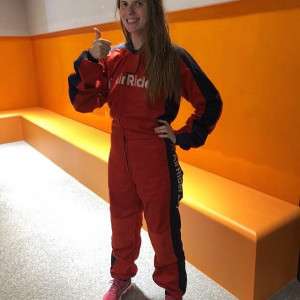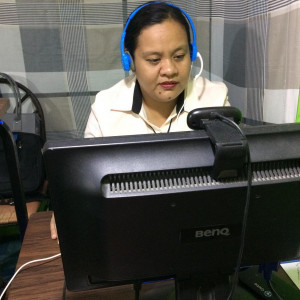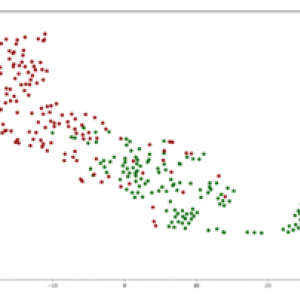What do you like about remote work?
Interview with Igor Kulman, a software engineer building iOS apps remotely
I like being the master of my own time and the flexibility.
When I need to go to the dentist or have something in the apartment done, I do not need to tell anyone or ask for time off.
Remote work opened new possibilities for me, I can work for a German company with no physical presence in my country just as easily as I could for a local company.
I also like the peace and quiet that allows me to concentrate on the job.
Igor converted a part-time contract into a full-time remote software engineering job—learn how he did it and his tips for working remotely.
Read full interview from Interview with Igor Kulman, a software engineer building iOS apps remotely.
Interview with Hannah, a freelance writer that travels the world
I love the flexibility, as long as I complete all my tasks, I can work from anywhere at any time.
Lately I’ve been waking up pretty early naturally, but I haven’t set an alarm in a long time. If I’m feeling sick one day, it’s great that I can sleep in and wear pajamas while I work. If I get stiff from too much sitting, I can decide to go take a walk.
Another advantage to remote work is that you can take advantage of how less crowded everything is on weekdays. If I can get enough work done on Sundays, it’s great to get lunch with a friend on a Monday because it’s a lot less busy than it would have been the day before when most people have off work.
I think it’s important to remember that working remotely doesn’t just change your life, but also the lives of people close to you.
This can be good or bad. If you plan to be traveling the world, either find a significant other who wants the same thing, or plan to be single while you do it.
Also with traveling, be prepared to miss the people you used to see more often and make sure to find time to email, Facetime, whatever it takes.
However, remote work also gives you the opportunity to visit friends who live far away more often, so it can also be useful for relationships. It’s important to maintain a good balance between work and personal relationships.
Hannah is a freelancer writer and social media manager that travels the world while working remotely. Read her interview to learn how she works.
Read full interview from Interview with Hannah, a freelance writer that travels the world.
Interview with Bennah, a remote ESL teacher that teaches kids English all over the world
What I like about remote work is that I could stay at home with my family since I am home based and could deal with different nationalities.
I can take a rest and hold my time whenever I am available. I am not compelled to go to an office and stay there for 8 hours every day.
After having classes with the kids I have nothing to worry about, unlike in the office, I would still bring my works at home and I don’t have time to take a rest.
Bennah is an ESL (English as a Second Language) Teacher who teaches students from all around the world while working from home.
Read full interview from Interview with Bennah, a remote ESL teacher that teaches kids English all over the world.
Interview with Deb, a sales copywriter who transitioned from software development
I like a lot of things about remote work, so yes, I have more to add –
- Being able to work in my pyjamas.
- Being my own boss – very important since I know that my own future is directly commensurate with the efforts I put in. All the more important, since I was laid off my last job because of reasons that were not in my control.
- The freedom of being able to work for multiple clients at the same time. I am constantly challenging myself, because each business is unique and whatever I need to do in a new project might be completely different from the previous one. One week I might be writing an email sequence for an e-commerce shop, the next week I might be writing website copy for a small business.
- Having to learn new skills to keep on top of my game – just being a decent writer is worth nothing if you don’t keep yourself updates. I invest heavily in courses to constantly learn new skills – be it free courses offered by [Hubspot], or paid courses on various aspects of content writing and copywriting.
- Being able to take a holiday from work as and when I want to.
- Having the potential to earn much more than what I did as a salaried employee. For the last 6 months, I have consistently pulled in an average monthly income which is 4 times what I used to earn when I was working in my last 9-to-5.
- Last, but not the least – getting a positive feedback from my clients from my clients and the feel-good factor, when they get in touch with me in a couple of months’ time telling me about the positive results they have got by utilizing the copy I wrote.
Deb made the jump from full-time software developer to freelance sales copywriter—learn how he made the transition.
Read full interview from Interview with Deb, a sales copywriter who transitioned from software development.
Interview with Hanling, a data scientist that works remotely on machine learning
The thing I like the most about remote work is that I can learn about the market easily (what is popular in the market and what market needs).
Then according to the market, I would be able to improve my skill sets and set a clearer goal for my future career.
Also due to the emergence of remote work, I would be able to utilize some of my fragmented free time to train my skills as well as making some pocket money, which makes me feel fulfilled.
Hanling started working remotely as a student and now does freelance machine learning and data analysis for clients all around the world.
Read full interview from Interview with Hanling, a data scientist that works remotely on machine learning.
Interview with Henry, a consultant who found remote work by saying No
I don't like wasting time. That's not to say I'm the most efficient person in the world (not even close), but with little kids and a company to run, I just don't have a ton of extra time.
I love that I don't have to waste time on a commute.
I love that my mental breaks don't have to be at the computer, discreetly going on Facebook like in an office. I can take a real break.
I love that my fridge is close by, rather than a shared office fridge.
It's a healthy lifestyle with work built-in.
Sometimes a "no" can lead to an exceptional opportunity. For Henry, that answer led to an ideal remote work career. In this interview, Henry shares his remote work tool stack, and essential tip for remote employees and managers.
Read full interview from Interview with Henry, a consultant who found remote work by saying No.
Interview with Stefan, a founder building a location-independent startup
Location freedom! In 2019 I ran my business while on a 3-week vacation to England, Scotland, and the Netherlands. I’ve been able to spend more time with family in my hometown since all I need is my laptop.
It’s been amazing to be able to have total control over my time. This may not be the case for all remote workers since some companies will still have “working hours,” but no matter what, remote work affords at least a bit more time freedom.
Stefan now has total control over his time since leaving the traditional office in early 2019. Hear how his routine is helping him build a solid remote startup.
Read full interview from Interview with Stefan, a founder building a location-independent startup .
Interview with Erin, a virtual assistant with a successful approach to freelancing
I love the physical freedom that remote work gives me. My wife and I are currently working from our home base in New Orleans, but we're headed to Italy and Hungary very soon!
Erin has found freelancing success as a virtual assistant—see her organizational tips & insights into how she picks clients that suit her business.
Read full interview from Interview with Erin, a virtual assistant with a successful approach to freelancing.
Interview with John, a web developer who works from home
Just about everything, actually.
But specifically, I like the lack of a commute to/from work. I used to enjoy my 15-minute drive to/from the office as I found it a nice way to ramp up or wind down from the day before being with my family.
But the ability to jump on the computer in the evening and knock out an hour or two of work without having to drive to an office to do it far outweighs it.
I like being able to work in whatever clothes I'm comfortable in.
I do a lot of video calls, so I'm rarely just wearing a tank top or anything like that, but I feel most comfortable wearing shorts, a t-shirt, and no shoes. That doesn't always fly when working in an office. Oh, and living in Vegas, any day not having to put on pants is a good day!
I like having access to my kitchen at lunchtime. And there's never a line for lunch or somebody else cooking something stinky in the break room. These were big issues when I used to work in an office. I don't miss that at all!
Plus, I save on the cost of eating out for lunch. I'm also able to better control what I eat this way.
John is a web developer running a mini-agency inside a larger WordPress agency - learn how calendar management and establishing boundaries have helped him boost his productivity.
Read full interview from Interview with John, a web developer who works from home.
Interview with Haley, a VP of Operations shares her stellar remote work strategies
-
People: Connection to the best talent in the world. I can’t imagine being able to source such amazing people if we weren’t distributed.
-
Time: Getting rid of the commute creates time to learn, think, and nap, all of which drive my productivity. I’m able to apply energy and discipline to the highest leverage activities (vs. figuring out where to park, getting annoyed sitting in traffic, navigating office chit chat when I just want to get something done).
Don’t get me wrong — I love people and enjoy the social aspect of work.
Working remote has allowed me to create much deeper relationships though; fewer surface “hi, hey, and hello's."
We get randomly paired with other people on the team for 30 minutes every other week and get to know people on a totally different level than I have in any office environment.
Haley has figured out the way she works best as a VP of Operations. See her principles of remote work and the unique advice a former boss gave her about breaks.
Read full interview from Interview with Haley, a VP of Operations shares her stellar remote work strategies.









